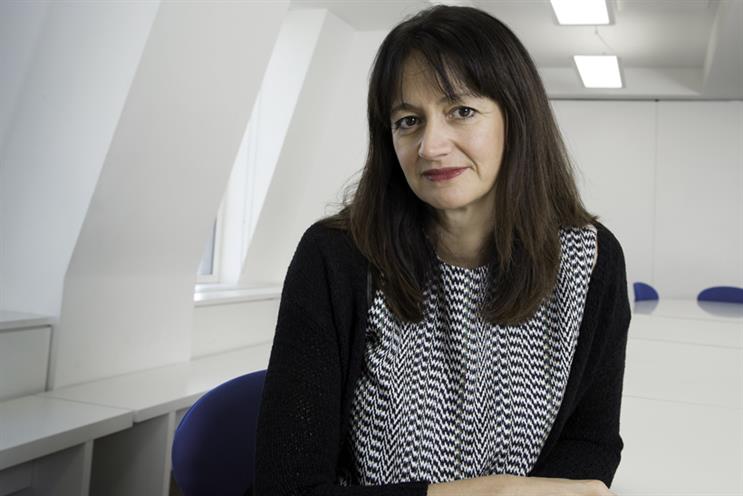Last year was demanding for media shops. The transparency debate was flung wide open, forcing the big holding group agencies and their clients to scrutinise long-held working practices.
The challenge this year is in regaining clients’ trust. That will only happen through an industry-wide focus on applying consistency to best working practices, which is easier said than done.
In 2017, ripples from the debate will encourage an increase in more effective independent media consultancies working alongside the legacy auditors. We also expect to see more clients recruiting
in-house media and digital skills.
In some cases, these in-house investments might start to replace client procurement teams as the gatekeepers of the media agency relationship. The landscape has become so complex that only a handful of client procurement teams are equipped to deal with it, and traditional media auditor pools are becoming increasingly irrelevant.
Transparency and viewability issues could also signal a move back to people-based measurement, answering the problem of millions of impressions that simply don’t stack up. Counting individuals, reach and frequency is an old-school method, but it is more relevant than ever.
The digital world is still in a period of discovery, so expect a few more battle lines to be drawn before we see harmony.
The transparency debate aside, agencies powered forward in 2016 and adapted well to new technologies, building teams, software and specialisms across a multitude of digital capabilities. It hasn’t been easy from a financial and cultural perspective, but media agencies are arguably pulling ahead of other marketing service disciplines when it comes to embracing and building tech innovations. We will see agencies continue to diversify in the coming months.
Media agencies get creative
2017 will see lines blurring between media and creative agencies. As media is digitised, it also gets more fragmented, and the ability to deliver relevant and timely creative becomes ever-more challenging. Clients already have limited time to dedicate to agencies, yet in some cases they are having to work with multiple shops and navigate a siloed process.
Increasingly, brands are looking for one-stop shops and are expecting media agencies to deliver creative solutions. Modern media agencies will soon need to put as much focus on the creative process as media strategy.
Convergence/divergence of media brands
It’s not just media agencies that need to diversify. Last year saw a proliferation of media brands stepping into new channels – Vice launched 24-hour TV channel Viceland, Sky made its long-awaited move into mobile and Amazon kept expanding into, well, everything.
Technology is facilitating the rapid growth of media brands as it continues to erode market barriers to entry. No longer is innovation preserved and protected as it once was. Factories share production lines for brands and their competitors: Facebook Live aped Periscope, which copied Meerkat. Instagram frequently mimics Snapchat’s most popular features.
In this new world, consumers accept that a brand can be a specialist in areas outside of their traditional fields of expertise. Media brands are simplifying the complexity of choice and are sympathetic to changing consumer needs.
Brands are moving into new areas, not because they are more profitable or command higher margins but because, in the new age, what’s big today could be replaced tomorrow. The only way of staying alive and relevant is to cover more touchpoints in their customers’ lives.
Agencies will need to follow suit. Innovation is imperative and the success of the modern agency will depend on keeping up with what’s new and what’s next, and understanding the role of each advance in technology. Like brands, agencies that rest on their laurels will soon be defunct.
Globalisation
To date, the success of brand globalisation has been based around logistics and cost-saving. Customers can get their favourite brands wherever they are and at a cheaper price because they are being made in the most efficient parts of the world.
To the contrary, globalised servicing and marketing in agencies has largely been a failure. The inability to understand local cultural nuances, languages and behaviours has led to bland global messaging and frustrated clients. This is an area that media agencies need to improve on.
There are two ways the agency of the future will need to operate. First, there will be a move towards automation and the use of bots. Agencies will learn from brand experimentation – the likes of Icelandair and Burberry are proving that bots are performing well. Agencies will soon wise up to the use of this technology, not least in dealing with generic client requests.
The inability to understand local cultural nuances, languages and behaviours has led to bland global messaging
Second, the move to globalisation will be facilitated by better deployment of talent. Employees will be spread around the world to service single pieces of business, making processes more efficient by passing work around the globe and being "on" 24 hours a day. Developments in tech and communications allow such servicing to become a reality. As we step into the world of instant everything, 24-hour servicing is likely to become an expectation.
Creativity and personalisation at scale
According to a survey by IBM, 88% of marketers believe their organisation’s growth depends on better personalisation and customer knowledge. And there’s no doubt that personalisation delivers.
The problem agencies face is keeping up with creating the necessary volume of tailored content. Traditional agencies aren’t set up for this – their cost structures are too high and their processes too inflexible. The future agency will find a way to satisfy this apparent demand.
Diversification, creativity and accountability will be on the agenda this year and beyond, shaping a very different landscape for the modern media agency.
Jenny Biggam is a co-founder of the7stars


